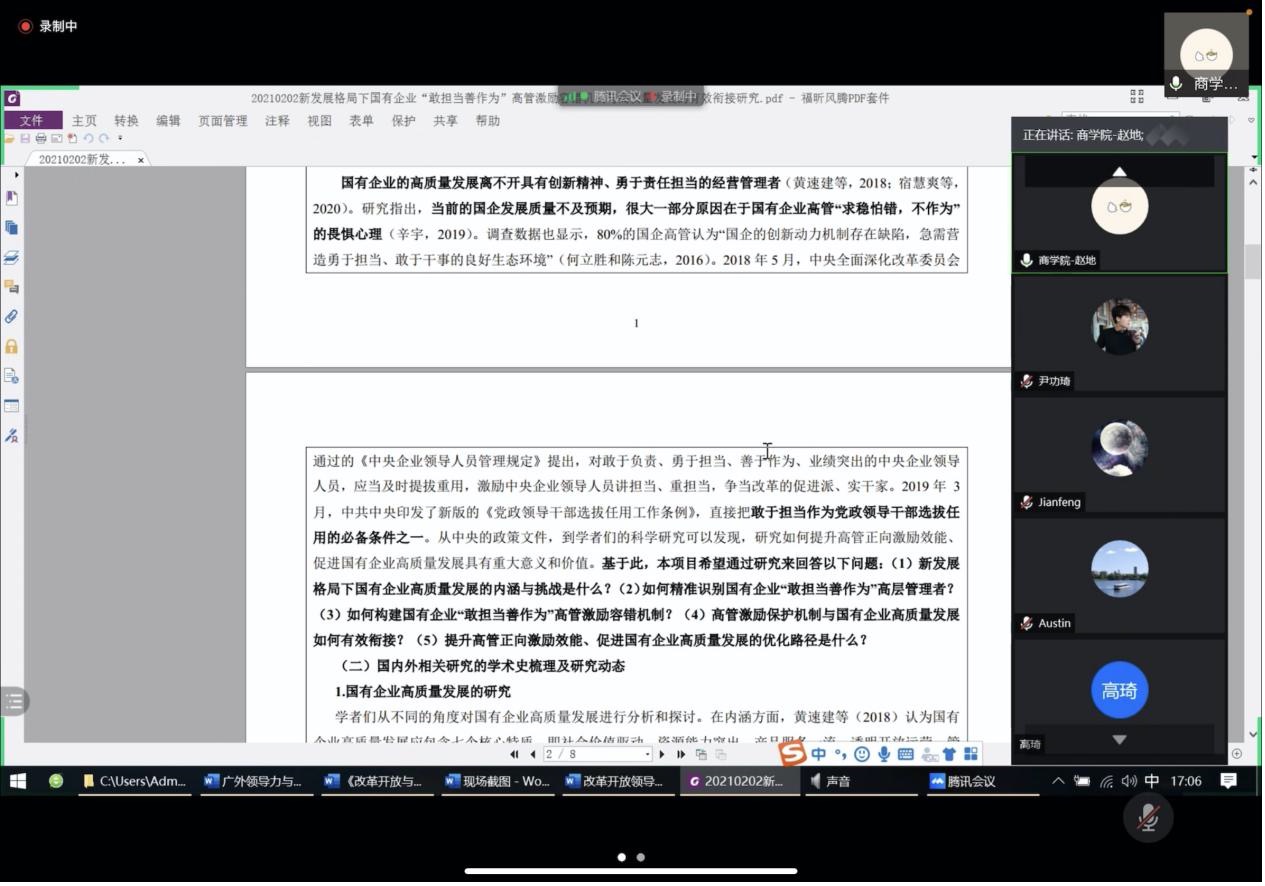On the afternoon of February 4, the LEO of GDUFS held a seminar in both online and on-site ways. A group of guests attended the seminar, such as Cheng Guanjun, deputy secretary-general of China Leadership Science Research Association and assistant of chief editor ofChina Leadership Science, Tan Bingcai, member of the Party group and deputy director of Development Research Center of Guangdong, Hu Jian, researcher of the Soft Power Research Center of the Shanghai Academy of Social Sciences and chief editor ofJournal of Social Sciences, Prof. Cui Yanhong, vice dean of School of Marxism of GDUFS, many researchers of the LEO of GDUFS including Prof. Han Yonghui, Prof. Du Jianfeng, Prof. Xie Jun, Associate Professor Liu Xiaoqin, Dr. Yang An, Dr. Yuan Fang, Dr. Chen Xiao, Dr. Sun Hailong, Dr. Zhao Di, Guo Shengjie, Lin Jiarong, Yin Gongqi, Xu Chuxin, and Fu Qiangwen, and Gao Qi from Academic Research Division of GDUFS. The seminar was chaired by Prof. Qiu Weinian, dean of Institute of Advanced Continuing Education (Open College) and School of Electronic Sports of GDUFS, director of the LEO of GDUFS, and president of Guangdong LEO.
The meeting was divided into two parts, namely, a discussion on the outline of the bookReform and Opening Up and the Leadership of the Communist Party of Chinaand the application of national projects in 2021. At the seminar, guests put forward different opinions and suggestions, which were summarized as follows: firstly, to increase the accuracy and conciseness of the project title; secondly, to improve the ability to grasp the positioning and perspective of the topic; thirdly, to optimize the logic of specific research questions; fourthly, to improve the ability to sort out the literature and make it more concise. In addition, they discussed issues like whether the theoretical basis was appropriate, whether the statistical method was rigorous, and whether the definition of independent variables was accurate, which provided great help to the further improvement of the projects.


